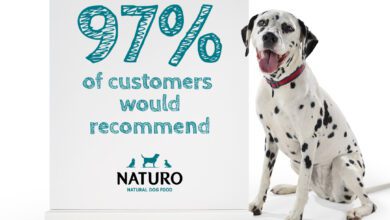Animal Care and Management T Level: a new qualification coming in 2024
On behalf of City and Guilds

In September 2024 a new qualification will launch with the aim of creating the animal care workforce of the future. The Animal Care and Management T Level is a two-year programme for 16 to 19 year olds which will be delivered in schools and colleges in England, but what does it involve and how will it help prepare young people for career success?
Following the ongoing reforms to technical education, T (Technical) Level qualifications will be the first choice for students wishing to start their career working with animals. T Levels are level 3 qualifications with each T Level roughly equivalent to three A Levels, preparing learners for the next step in their careers, whether that’s starting work within the pet industry, completing an apprenticeship or attending university.
The qualification has been developed with businesses firmly in mind, as T Levels are based upon a set of standards developed by employers, focusing on the exact skills that are needed by employers and organisations within the pet care industry. The teaching will focus on areas such as animal health, nutrition, welfare and behaviour to ensure learners leave with the knowledge and skills required to be successful in the pet care industry. Learners will also study core areas including sustainability, biosecurity and health and safety which are fundamental to all sectors within the industry.
Learners will then choose to study one of the following Occupational Specialisms: Animal Care and Management or Animal Care and Science. Both Occupational Specialisms will provide learners with the opportunity to gain practical, hands-on experience with a wide range of different species, gaining essential knowledge and skills relating to animal husbandry. The Animal Care and Management Occupational Specialism digs deeper into topics such as animal behaviour, training, handling and environment design. Whereas the Animal Care and Science Occupational Specialism takes a more scientific approach to animal management, covering topics such as microbiology, biochemistry and genetics.
T Levels also give learners an opportunity to put their training into practice during the mandatory industry placement that is part of the programme. Every T Level is 80% classroom or workshop-based and 20% industry placement, adding up to around 45 days spent in a meaningful role, honing and developing their practical skills and techniques.
This industry placement is a great opportunity for a learner but can also be a fantastic chance for you to help shape the future of the sector and even to build your perfect employee. While the training provider helps to set the foundation of knowledge you can train the skills that you know best, drawing on your own real-world experience to show them exactly what a role in animal care needs. Getting involved in the delivery of T Levels is a great way to help close the skills gap and create a young workforce that understands the realities of the pet care industry.
These placements aren’t the only way to support T Level delivery. In order to make these qualifications as relevant as possible it’s vital that animal care experts from across every possible sector give their feedback on the content being covered. Is there anything missing? Do any parts need to be highlighted more? Or are there any sections that feel either too advanced for or not relevant to learners?
Now is the ideal time to get involved with the Animal Care and Management T Level as it’s prepared for launch next year. Register your details to get involved in one of our feedback sessions or set up a chat with our Employer Engagement Manager by completing the expression of interest form our website.













